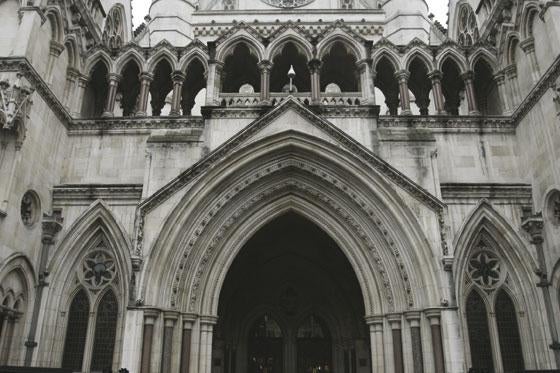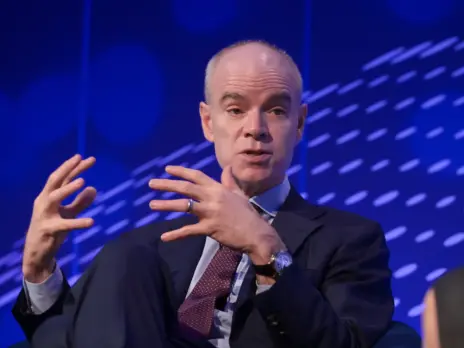
Media tycoon Rupert Murdoch asked former Tory prime minister John Major to change policy on Europe, the Leveson Inquiry into press standards heard today.
Murdoch – owner of The Sun and The Times – warned that without change his newspapers would not support the then Conservative Government, Sir John said.
The conversation took place during a dinner in February 1997 – a few months before Labour defeated the Conservatives at the general election.
“Mr Murdoch said he really didn’t like our European policies,” Sir John said. “That was no surprise to me.”
Sir John added: “He wished me to change our European policies. If we couldn’t change our European policies his papers could not, would not support our Conservative Government.
“As I recall he used the word ‘we’ when referring to his newspapers. He didn’t make the usual nod to editorial independence.”
Sir John told the inquiry: “There was no question of me changing our policies.”
In April, Murdoch told the Leveson Inquiry: “I have never asked a prime minister for anything”, and added: “If any politician wanted my opinions on major matters, they only had to read the editorials in The Sun.”
Major said he had dinner with Mr Murdoch on February 2 1997. “Just before the 1997 election it was suggested to me I ought to try to make some effort to get closer to the Murdoch papers,” he said. “I agreed I would invite Mr Murdoch to dinner.”
He thought Murdoch was “edging towards” a referendum on leaving the European Union after raising the European policy issue, said Sir John, who was Conservative prime minister between 1990 and 1997.
But the matter was not pursued. The discussion was one he was unlikely to forget, Sir John said, adding: “It is not often someone sits in front of a prime minister and says to a prime minister ‘I would like you to change your policy or my organisation cannot support you’.
“It is unlikely to be something I would have forgotten.”
Sir John said he met Murdoch three times during his premiership – in 1992, 1993 and 1997.
Thatcher admired ‘buccaneering businessmen’
Former Conservative prime minister Margaret Thatcher admired “buccaneering businessmen” who were prepared to take risks, an inquiry into press standards has been told.
Sir John Major – who succeeded Mrs Thatcher as Tory premier in 1990 – told the Leveson Inquiry that newspaper proprietors fell into that “buccaneering” category.
And Sir John said Mrs Thatcher’s right-wing views appealed to national newspaper editors and proprietors. He was speaking after being asked to outline the relationship Mrs Thatcher – now Baroness Thatcher – had with newspaper tycoon Rupert Murdoch, owner of The Sun.
Sir John, who left office in 1997, told the hearing in London that Thatcher’s policies on issues such as trade union reform and Europe appealed to most national newspapers.
He dismissed a Kelvin MacKenzie anecdote about a conversation the two men had at the height of the exchange rate mechanism crisis, dubbed Black Wednesday, in 1992. The former Sun editor claims that, when asked about how the newspaper would be covering the story, he said: “Well, John, let me put it this way – I’ve got a large bucket of s*** lying on my desk and tomorrow morning I’m going to pour it all over your head.”
Sir John told the inquiry it had been the only time he had telephoned MacKenzie, adding: “I was certainly never going to do so again.” He said the story had acquired a “mythical” status but insisted he remembered no such phrase being used.
Sir John admitted he had personally struggled with the negative press coverage he had received during his time in office. Asked if it was true he had been “too sensitive” at the time, he replied: “It certainly would be. I would not deny that at all. I was much too sensitive from time to time about what the press wrote. God knows why I was but I was. It was a basic human emotion to get a bit ratty about it.”
Sir John said he thought too close a relationship with the press was “rather undignified”. But keeping himself more remote made him an easier target for hostile newspaper coverage, the inquiry heard. “It is easier to be hostile to people you don’t know,” he said. “I didn’t inherit the naturally close affinity my predecessor had earned with the press over a long period of time.”
Sir John echoed previous political and celebrity witnesses in stressing there were some “very good” parts of the British press and some parts that were “not very good at all”. Attacking what he saw as the worst culprits, he said: “They don’t report the news accurately, they tend to deal in caricatures, they tend to take a particular point and stretch it beyond what is reasonable… It’s not the case that every part of the British press misbehaves. It is the case, sadly, that some of it misbehaves.” But he said he hoped the result of the inquiry would be to raise the standards of the worst offenders to match those of the best.
He also criticised excessive “chumminess” between politicians and the media, arguing that it threatened the press’s ability to properly do its job of holding the government and politicians to account. The other danger was that disagreements between ministers could be blown out of proportion if politicians leaked them to their friends in the press, he suggested.
Such disagreements could then be portrayed as huge splits within government “when in fact they’re the perfectly proper examination of policy by ministers”, he said.
“I think that perversion… whisks those private discussions out in public and offers those seeking favour with the Press the opportunity to offer inside stories to the detriment either of their colleagues or other political parties. News and comment had become “melded to a great extent”.
‘Back to basics’ scandals
But the Press’s habit of taking an angle and stretching it could be explained in part by the need to put something fresh in the papers once the headlines themselves had become “stale buns”, he said, adding: “By the time people pick up their newspapers the news has been absorbed… I have some sympathy for that.”
The advent since 1997 of party political appointees to act as press secretaries and special advisers came under fire in Sir John’s evidence as well, and the former prime minister advocated the return of such functions as running the government information service to the Civil Service.
He said: “My concern is, once you move towards the politicisation of the government information service, you did move into a sphere where the news could be perverted rather than presented accurately and without spin to the media at large.”
Sir John told the inquiry he believed the way the Press dealt with the “back to basics” scandals was unfair.
He read out a section of the original speech, made to the Conservative Party conference in 1993, which called for children to be given the best teaching, for British industry to be the best and for public services to be of a high standard.
“It wasn’t a puritanical moral crusade at any time,” he said.
A number of politicians were “hurt” because their misdemeanours had been “tied to hypocrisy” following the speech, he said.
One of the most high-profile revelations was an expose soon after the address that the then environment minister Tim Yeo had fathered an illegitimate child by Conservative councillor Julia Stent.
“It was a totally false position from the start,” Sir John added. His former political foe, Neil Kinnock, was unfairly portrayed in the Press while Labour leader, said Sir John.
“The Neil Kinnock I knew was very honest, very straightforward,” he went on. “If I met him privately, it stayed private. If he gave me his word, he kept his word.
“I found him very straightforward to deal with and, in my judgment, a much more considerable person than he was portrayed as being in the media I had seen before I came to know him.”
Email pged@pressgazette.co.uk to point out mistakes, provide story tips or send in a letter for publication on our "Letters Page" blog






